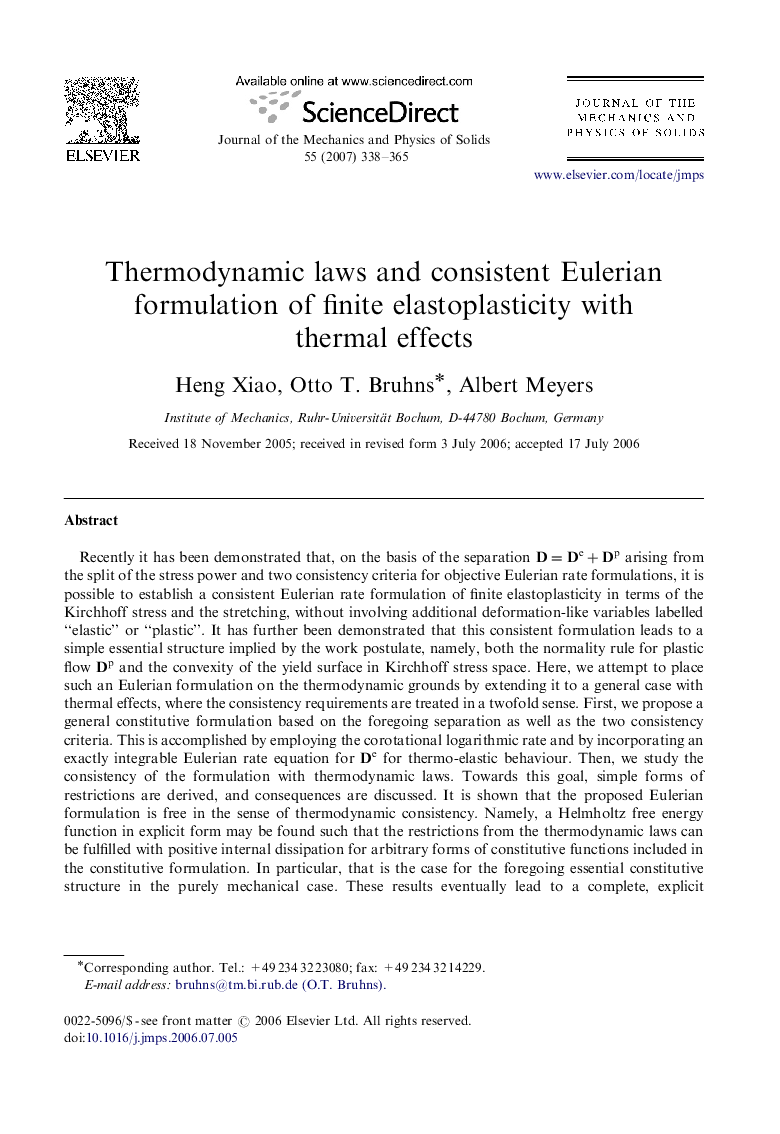| Article ID | Journal | Published Year | Pages | File Type |
|---|---|---|---|---|
| 798393 | Journal of the Mechanics and Physics of Solids | 2007 | 28 Pages |
Recently it has been demonstrated that, on the basis of the separation D=De+DpD=De+Dp arising from the split of the stress power and two consistency criteria for objective Eulerian rate formulations, it is possible to establish a consistent Eulerian rate formulation of finite elastoplasticity in terms of the Kirchhoff stress and the stretching, without involving additional deformation-like variables labelled “elastic” or “plastic”. It has further been demonstrated that this consistent formulation leads to a simple essential structure implied by the work postulate, namely, both the normality rule for plastic flow DpDp and the convexity of the yield surface in Kirchhoff stress space. Here, we attempt to place such an Eulerian formulation on the thermodynamic grounds by extending it to a general case with thermal effects, where the consistency requirements are treated in a twofold sense. First, we propose a general constitutive formulation based on the foregoing separation as well as the two consistency criteria. This is accomplished by employing the corotational logarithmic rate and by incorporating an exactly integrable Eulerian rate equation for DeDe for thermo-elastic behaviour. Then, we study the consistency of the formulation with thermodynamic laws. Towards this goal, simple forms of restrictions are derived, and consequences are discussed. It is shown that the proposed Eulerian formulation is free in the sense of thermodynamic consistency. Namely, a Helmholtz free energy function in explicit form may be found such that the restrictions from the thermodynamic laws can be fulfilled with positive internal dissipation for arbitrary forms of constitutive functions included in the constitutive formulation. In particular, that is the case for the foregoing essential constitutive structure in the purely mechanical case. These results eventually lead to a complete, explicit constitutive theory for coupled fields of deformation, stress and temperature in thermo-elastoplastic solids at finite deformations.
